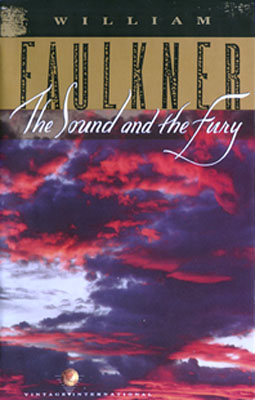Three a.m. Sunday. Geez. What a time to be thinking about rhetoric and Romanticism.
I took the course because at some point during the Summer of Insanity 2004, while reading A Grammar of Motives I began to realize that I could only go so far with the rhetoric of dystopian fiction without refering to the traditions of revolutionary rhetoric. Specifically, what I didn't know, but had a sneaking suspiscion about, was where/who/when/why we (Anglophones?) began to see literature as an opportunity not only for social criticism, but to provoke a desire for change in our audiences.
So I went through that table in my head of the Periods of English Literature. While the Restoration folk had a lot of political commentary, I decided, they were mainly members of the elite, literate class. Major social revolutions had yet to happen. What I needed was something around, say, the American and French Revolutions, which, luckily occured relatively close together. The British and Americans were entrenched in (some form of ) the revolutionary spirit. And then he appeared in my head.
William Fuckin Wordsworth
And his precious The Prelude.
Good old WW exemplifies the Romantic spirit, by which I mean a focus on the individual (i.e. Agent) that goes along with both revolutions. Romantics believed in the power of the imagination, of personal transcendence of surface phenomonen. In saying "Screw the city; I'm going to go sit in Nature for a while" there is an implicit social criticism.
What's more, WW and friends wrote many treatises defending the place of poetry. From WW's "Preface to Lyrical Ballads" which asks his audience to be open to his use of "common" language for poetry to Shelley's "Defence of Poetry" which is doing so much that no one can agree on its main thesis--something about Poetry's ability to transcend and give truth/beauty/god through the imagination of the poet--the Romantics are deeply concerned with what their poetry is doing. And while they do not use these terms, that, my friends, is the sphere of rhetoric.
What did WW assume poetry could do? He saw himself as the poet who could bring the sublime to others. But what, I wonder, happens after readers (what kind of readers were they?) recognize with WW in that 13th chapter, the true nature of the sublime, of imagination? Are we to all run to the Alps or an Abbey and leave behind the choking cities? What of the fact that WW details the joy and intense violence of the French Revolution? What did he want his readers (mainly his close friends and family at that point) to do? What, in Burke's terms, is the Representative Anecdote, the "equipment for living" we are to take from this?
And of the abolitionist poetry, which lacks the subtlety of WW's political arguments in The Prelude, we see actual, real, political debate revolving around what the politicians read in those poems. Real social controversy and dialogue emerge from something some chicks (okay, some dudes) put down on paper and published. And while they lack the sophisticated anecdotal rhetoric, we see poetry as power because poetry is being disseminated to the masses, who are gaining the power to act politically
No wonder in the Victorian era, then, Ruskin (or was it Pater?) believed that declining culture of England (his words, not mine) could be saved by moral education from the arts? That painting and poetry can save us all, if the masses can all be moved at once by the representative anecdotes (my words, not his) art gives us. No wonder the medium most accessable to the masses in the 1930s and 1940s--the novel--boasted some of the most revolutionary rhetoric ever.
The beliefs about poetry and social action that the Romantics left us with--specifically, I think, there is something about the special ability of a poet-hero to notice the problems around him and write so as to stroke the Imagination of a "vulgar" audience--have declined little in popular understandings of "the writer." While in the academy we know that there is no magical Author(ity) any more, that writing is always plural, that there is nothing new under the sun--still, the public imagines a Thoreauian poet who says "Damn it all to hell" and shrinks hermit-like into his woods to contemplate the earth's troubles before transmitting (translating?) those to us. CSPAN has a few hours of Book time because of this; authors of nonfiction books are invited on Jay Leno and praised for their insights because we stil believe that we need these Authors to save us from our own stupidity.
As long as someone is still writing critically, poetically, beautifully, tyrany can't take hold. Our vigilance is in our "poets."
Plato wanted no poets in his Republic because they were too apt to stir up the masses. For literature in English, the idea that we can use that to our advantage seems to have emerged with the political revolutions (which came first, chicken or basketball?) of the 18th century. A little more than 200 years later, Harry Potter and the Order of the Phoenix became the best selling dystopia EVER (I plan on writing an essay explaining how it is a dystopia, but if you've read it, you should know what I mean). Harry Potter is the poetry of our masses, the tentative situation with the "War" on "Terror" is symbolic of larger political stirrings, and Jon Stewart is our Mary Wolstoncraft. And this rhetorical situation, with all of these tensions of symbolic acts (writing, and now, television and film) being the constant force against acts of total domination, is just how we like it. There will be no revolution unless we move from the Attitude (i.e. "latent Action") we learn anecdotally through Harry and Jon to the Action that those in power are able to have.
The spirit of Romanticism, often connotative of "naivity," is still in our language. If we still have the ability to talk about Revolution, we'll be okay. As much as I hate it for its dependency on some grandiose white male genius moment, we need the rhetoric of Romanticism because it is our founding ("constiutional") rhetoric, without which there is room for rhetorics of apathy or domination to take hold.
The End. For now.


